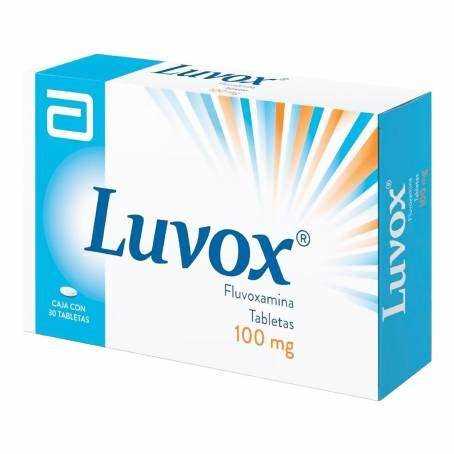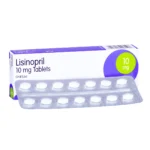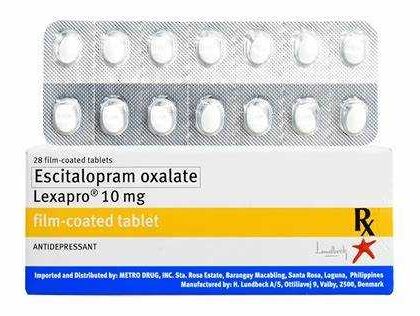Comprehensive Guide to Luvox: Uses, Side Effects, and Benefits
When it comes to managing specific mental health conditions, certain medications have proven remarkably effective. Understanding how these medications function, the potential reactions they may trigger, and the range of advantages they offer is essential for both patients and healthcare providers. This guide explores Luvox (fluvoxamine), a commonly prescribed treatment, shedding light on its mechanisms, potential challenges, and the numerous ways it can enhance well-being.
Medications designed to manage psychological conditions often come with a mix of positive effects and possible complications. By exploring these outcomes and therapeutic benefits, we aim to provide a balanced view that can inform treatment decisions and foster better health outcomes.
Furthermore, navigating the landscape of mental health medication involves considering both immediate and long-term repercussions. This guide offers a thorough examination of Luvox, highlighting its potential to improve quality of life while acknowledging the importance of being aware of its complete profile. By the end of this article, readers will have a comprehensive understanding of what to expect, empowering them to make informed choices about their treatment options.


Medical Applications
This section provides an in-depth examination of the therapeutic purposes for which Luvox is prescribed, offering a comprehensive understanding of its role in modern medicine.

Primary Indications
Luvox is frequently prescribed for the management of obsessive-compulsive disorder (OCD), characterized by unwanted and intrusive thoughts that compel repetitive behaviors. The treatment aims to alleviate these symptoms and improve the quality of life for those affected.

Additional Therapeutic Uses
Beyond its primary indication, Luvox is also utilized for treating other psychiatric and neurological disorders, including:
Social Anxiety Disorder: Helps reduce the persistent fear of social situations.
Major Depressive Disorder: Assists in managing symptoms of depression.
Post-Traumatic Stress Disorder (PTSD): Aids in alleviating symptoms associated with traumatic experiences.
Panic Disorder: Helps control sudden episodes of intense fear.
Healthcare providers may also prescribe Luvox for off-label uses, which, although not officially approved, have shown efficacy in clinical practice. These may include conditions such as chronic pain management, eating disorders, and other anxiety-related conditions. It is essential that this medication is prescribed by a qualified healthcare professional who can evaluate the patient’s overall health status and determine the appropriateness of the treatment.
Potential Side Effects
Understanding the possible adverse reactions associated with Luvox is crucial for anyone considering this treatment option. Being aware of these reactions helps in making informed decisions and managing expectations.
Common Reactions
Common reactions to Luvox may include gastrointestinal issues such as nausea, vomiting, or diarrhea. Users also frequently report experiencing headaches, dizziness, or drowsiness, which can affect daily activities. Changes in appetite and sleep patterns are also commonly observed. Some individuals might experience mild anxiety or agitation as their body adjusts to the medication, although these reactions are often temporary and may diminish over time.
Severe Reactions
While rare, serious reactions require immediate medical attention. These can include:
- Allergic Reactions: Rash, itching, or swelling of the face, tongue, or throat, along with difficulty breathing or severe dizziness.
- Serotonin Syndrome: A potentially life-threatening condition that occurs when there is too much serotonin in the brain. Symptoms may include high fever, hallucinations, seizures, severe muscle stiffness, and rapid changes in heart rate or blood pressure.
- Mood Changes: Increased depression, suicidal thoughts, or aggressive behavior should be closely monitored. If any of these symptoms arise, it is vital to contact a healthcare provider immediately.
While most users may not experience significant issues, being informed about both common and severe reactions ensures proactive health management.
Benefits of Luvox
This section highlights the positive aspects associated with Luvox, emphasizing how it may support overall well-being:
- Effective Treatment for Mental Health Conditions: Luvox is widely recognized for its efficacy in addressing various mental health disorders, providing relief and improving quality of life for many users.
- Reduction in Obsessive Thoughts: It significantly reduces obsessive and intrusive thoughts, particularly beneficial for individuals with OCD.
- Improved Mood: Many users report enhanced mood and a general sense of well-being after starting treatment, leading to better social interactions and increased productivity.
- Support for Anxiety Management: Luvox can help calm the mind, reduce nervousness, and alleviate physical symptoms associated with anxiety disorders.
- Customizable Dosage: The flexibility in dosing allows healthcare providers to tailor treatment to each patient’s specific needs, ensuring optimal results with minimal adverse reactions.
While the advantages are substantial, it is essential to discuss any treatment options with a healthcare professional to determine the best course of action based on individual health needs.
Who Should Avoid Luvox?
Understanding the demographic that should avoid Luvox is crucial for informed decision-making:
- Individuals with hypersensitivities or allergic reactions to Luvox should consult a healthcare professional before considering its use.
- Those with a history of adverse reactions to similar medications should approach Luvox cautiously.
- Pregnant women and nursing mothers should extensively consult with their healthcare provider regarding its effects on fetal development and breastfeeding infants.
- Children and adolescents require careful evaluation before treatment due to the potential impact on their development.
- Individuals with a history of substance abuse should exercise caution, as some formulations may pose a risk of dependency.
- Patients with liver or kidney impairment should proceed with caution, as metabolism and excretion may be altered.
- Elderly individuals should undergo careful evaluation due to potential age-related changes in physiology.
- Patients currently taking other medications should disclose this information to their healthcare provider to assess potential interactions.
- Individuals with a history of psychiatric disorders should undergo thorough evaluation before treatment.
- Those with a history of suicidal ideation should exercise extreme caution, as Luvox has been associated with an increased risk of suicidal thoughts, especially during the initial treatment stages.
Important Considerations and Precautions
Several crucial aspects demand attention when considering the use of Luvox:
- Informed Consent: Thorough consultation with a healthcare professional is paramount. This includes candid discussions about medical history, existing conditions, and concurrent medications.
- Contraindications and Adverse Reactions: Vigilance regarding potential contraindications and adverse reactions is essential. Recognizing both overt and subtle signals indicating an unfavorable response can be critical.
- Adherence to Prescribed Dosages: Strict adherence to medical advice is vital to avoid unforeseen consequences.
- Open Communication: Maintaining open lines of communication with healthcare providers fosters a collaborative approach to treatment, ensuring prompt attention to emerging concerns.
Exploring the Scope of Usage
This section delves into the wide array of applications and potential implications of Luvox. Understanding its varied therapeutic avenues is crucial for comprehensive care.
- Psychological and Neurological Applications: Luvox’s role extends beyond conventional paradigms, addressing psychological afflictions and neurochemical imbalances.
- Cognitive Functions: It can also have nuanced impacts on cognitive functions, aiding individuals in managing their mental health effectively.
While exploring these facets, it is essential to remain mindful of the medication’s potential adverse reactions and contraindications, navigating the terrain with diligence.
How To Use Luvox
In this informative video, we explore Luvox.
Why us?

Authenticity Guaranteed:
We ensure that every batch of Capoten is sourced from trusted manufacturers, providing you with genuine medication that meets the highest quality standards.

Competitive Pricing:
Our pricing is designed to make essential medications like Capoten accessible to all, offering competitive rates and frequent discounts to help you manage your health affordably.




